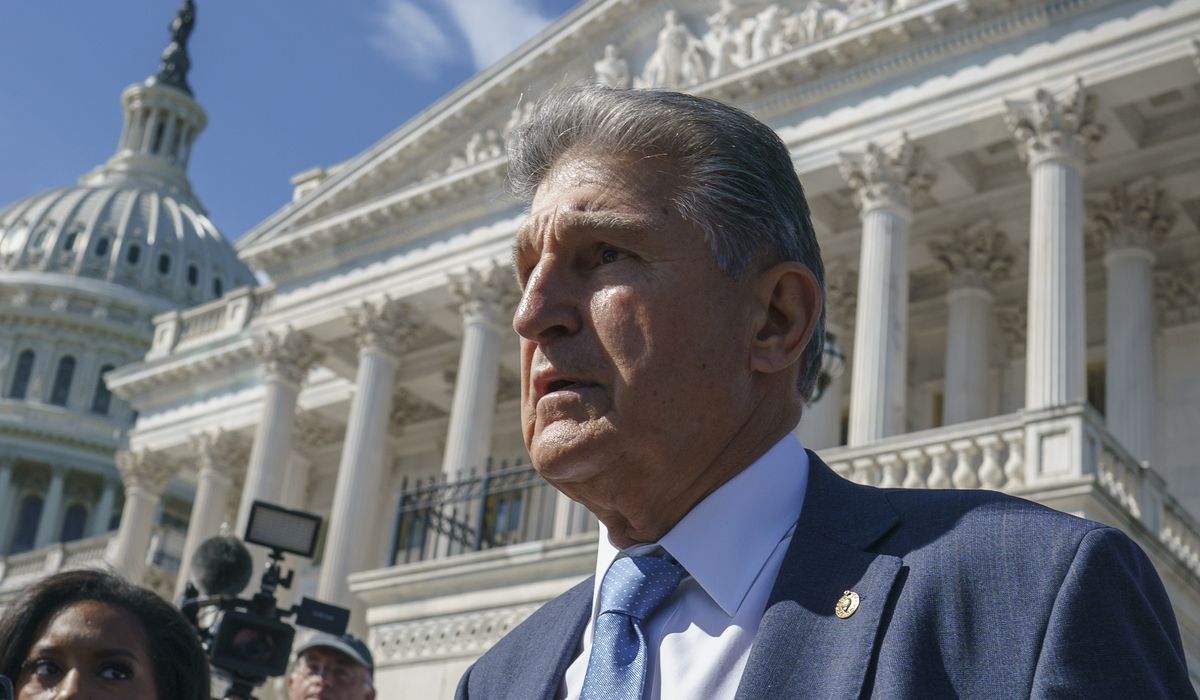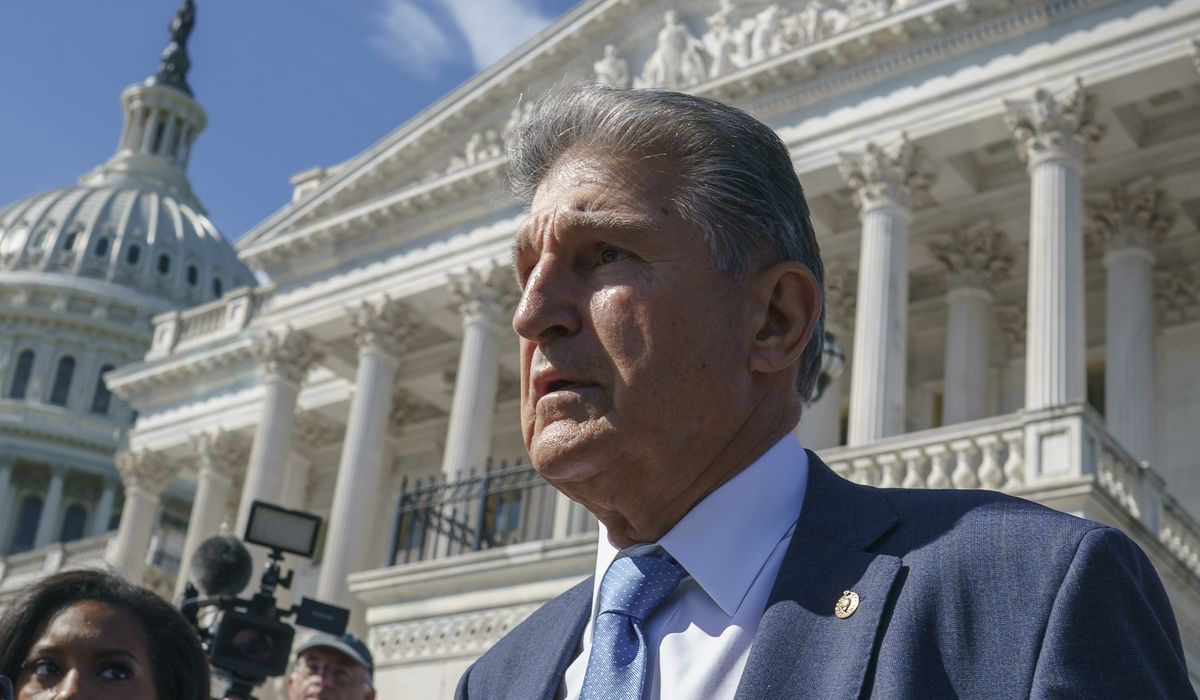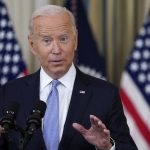
Sen. Joe Manchin III said there’s no chance of reaching a framework on President Biden’s $3.5 trillion social welfare package Wednesday, ending his party’s hopes of a double-victory on the budget and a separate $1.2 trillion infrastructure bill.
That leaves House Speaker Nancy Pelosi out on a limb, having promised her caucus’ more moderate members a vote Thursday on the infrastructure bill, but telling her liberal members it would be coupled with a deal on the budget. The progressives say they’ll tank the infrastructure bill if Mrs. Pelosi moves ahead, which would signal a searing defeat for the California Democrat.
The White House and Democratic leaders on Capitol Hill had hoped to reach a “framework” on the budget, figuring that locking in the big details would be enough to assuage the liberals.
Mr. Manchin, one of two key centrists in the Senate, said Wednesday such a framework is beyond reach on that timetable.
“No, it’s not possible,” he scoffed to reporters.
Mrs. Pelosi must decide whether to move ahead with the infrastructure vote anyway, daring the progressives to sink it despite Mr. Biden’s support for the $1.2 trillion of road, bridge, railway and airport projects.
Mrs. Pelosi said as she left the Capitol on Wednesday evening that Mr. Manchin‘s statement didn’t change her plans.
“The plan is to bring the bill to the floor,” she told reporters.
Asked if she was worried the bull would fail, she said, “One hour at a time.”
The liberal lawmakers don’t object to the bill itself, but rather see it as their leverage to force the budget package, which is supposed to contain the climate change, health care and social safety net policies that the left has been clamoring for.
“I want to see that bill passed, and to me, that’s the only way to guarantee that, given that we’ve got a lot of assurances along the way that never turned out to be true,” said Rep. Pramila Jayapal of Washington, chairwoman of the Congressional Progressive Caucus. “So, I’m, I’m now past trust, I’m to verify.”
She said Wednesday that at least two dozen House Democrats will vote against the infrastructure package unless the Senate passes a still-unwritten budget bill.
Mrs. Pelosi was coy about her plans Wednesday afternoon.
“We’ll take it one step at a time,” she said. “I can’t keep a commitment that the Senate has made impossible to do, but what I have also said is we’re not proceeding with anything that doesn’t have agreement between the House and the Senate.”
Rep. Dan Kildee, Michigan Democrat and a member of Mrs. Pelosi’s leadership team, told The Washington Times that bills should only go to the floor when there are the votes to pass them.
“If we have people who aren’t ready to do that and know very few Republicans who are willing to sign on, my view is we move the bill when we’re ready to pass it,” he said.
But Rep. Stephanie Murphy, one of the moderate Democrats, said Mrs. Pelosi would be going back on her word by delaying the vote again.
“I think that if the vote were to fail tomorrow or be delayed, there would be a significant breach in trust that would slow the momentum in moving forward in delivering the Biden agenda,” she told reporters.
Mrs. Pelosi has been dealing with the tension over the two bills for months.
In August, the moderate Democrats were prepared to derail the budget altogether, saying the infrastructure bill — which cleared the Senate on a strong bipartisan vote — must go first. They caved, but only after Mrs. Pelosi agreed to a firm deadline for an infrastructure vote.
That deadline came and went Monday, with Mrs. Pelosi asking for a three-day grace period.
She was huddling with other party leaders Wednesday to decide whether to ask for more time or to challenge her party’s increasingly powerful left wing.
Mrs. Pelosi is working with a slim majority of only a handful of seats in the House, so any significant defections can upend her plans.
Senate Democrats, meanwhile, are working with an evenly divided chamber, where their majority depends on Vice President Kamala Harris’ tie-breaking vote. That means every Senate Democrat must be on board.
Mr. Manchin, of West Virginia, along with Sen. Kyrsten Sinema of Arizona, are the key holdouts in the upper chamber, saying the size of the $3.5 trillion package is too big.
Mr. Manchin released a statement Wednesday afternoon reaffirming his red lines, saying any new social welfare programs must be targeted to those who need them and tax increases can’t slam small businesses.
He said he’s wary of “careless spending and bad policies.”
“Overall, the amount we spend now must be balanced with what we need and can afford — not designed to reengineer the social and economic fabric of this nation or vengefully tax for the sake of wishful spending,” he said.








